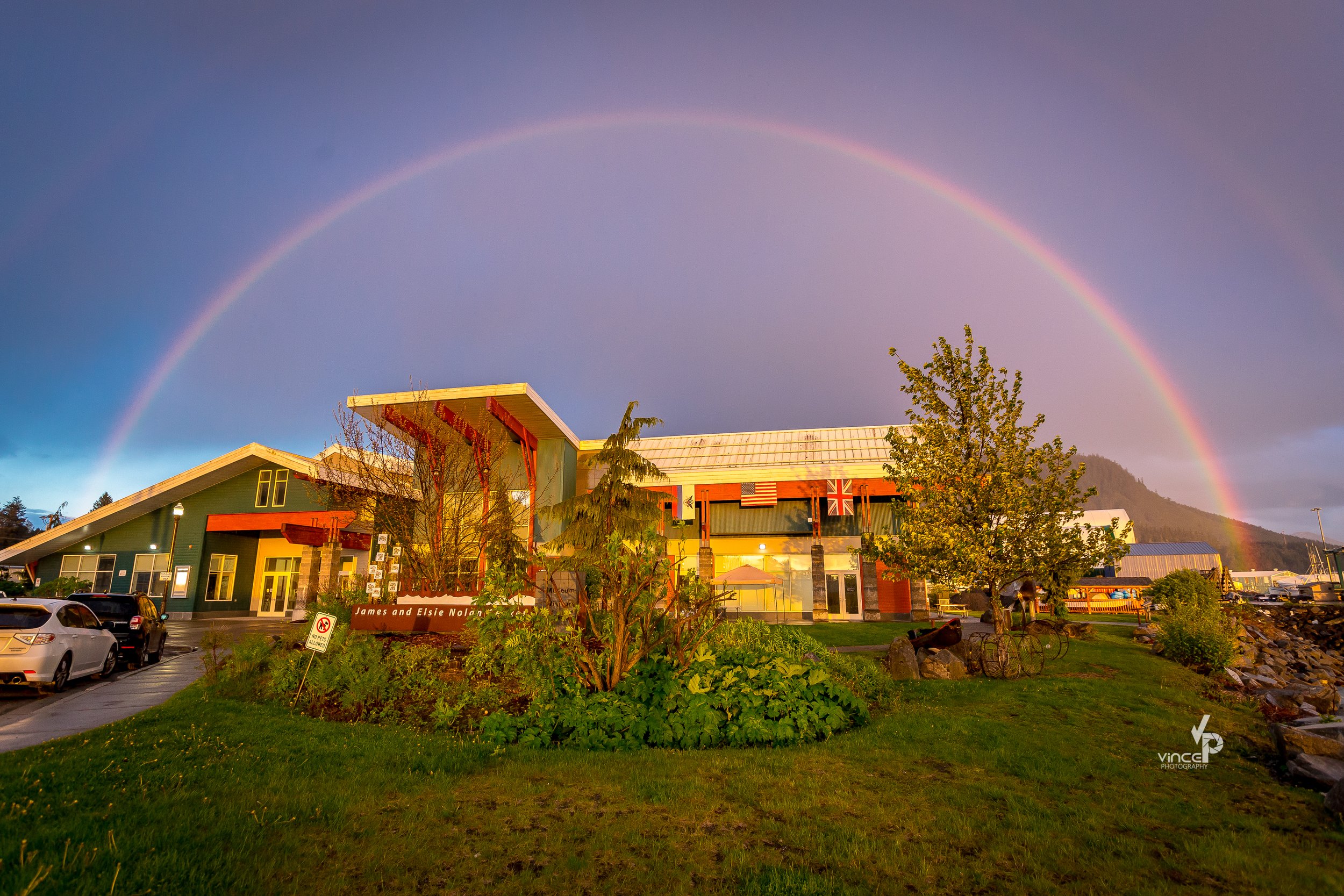
WRANGELL MUSEUM
Representing the culture, heritage & peoples of Wrangell
The Museum’s collection reflects Wrangell’s long and colorful past.
Four of the finest hand-carved Tlingit houseposts are on loan to the museum from the local Wrangell Cooperative Association. Carved in the late 1700s, these are thought to be the oldest known houseposts still in existence today. The museum has an enviable collection of spruceroot and cedarbark baskets from the turn of the century on display. Early settlement of Wrangell by the Russians and the English are represented in our collection on early exploration history. Chinese and Japanese collections depict later foreign influences in Wrangell.
Wrangell was a vital supply center for three major gold rushes to impact the area. Beginning in 1861 with the Stikine Rush, Wrangell was a bustling boomtown replete with saloons, hotels, and warehouses. In 1898, Wrangell provided early access to the Klondike gold fields up the nearby Stikine River. The Museum's photo collection, now numbering over 3,000 photographs and negatives, begins its documentation of Wrangell history during the gold rush heyday.
Trapping, fishing and forest industries, all major players in the development of Southeast Alaska, are represented in the collection, as is the community's character and charm with memorabilia from local business, families and individuals throughout this small, local museum.
Don't miss the opportunity to visit this unique and varied collection!
